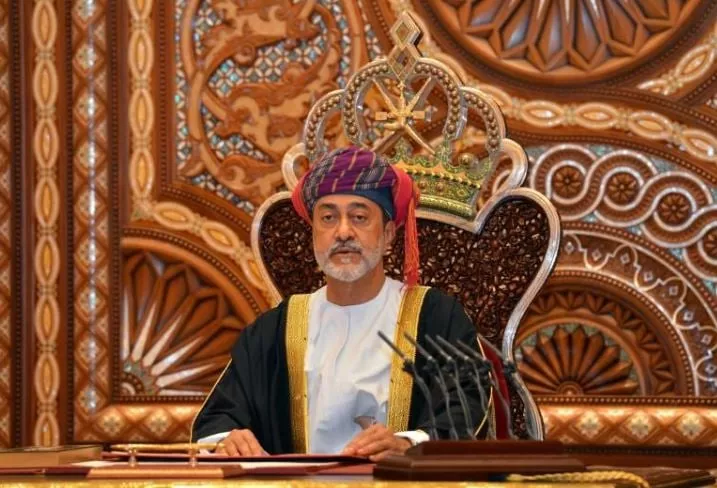Oman transfers powers from Sultan's remit in government revamp
Oman is struggling with budget deficit and economic downturn from the double blow of low oil prices and coronavirus
DUBAI:Oman’s sultan has designated ministers of foreign affairs and finance, and a central bank chairman, titles formerly held by himself, in a revamp that may signal increased reform momentum for the struggling oil producer.
Sultan Haitham bin Tariq al-Said, who took power in January after Sultan Qaboos bin Said died after a half century in power, maintains the titles of prime minister, defence minister and armed forces chief following the decrees read on state television on Tuesday.
Oman, whose debt is rated “junk” by all major ratings agencies, is struggling with a widening budget deficit and economic downturn from the double blow of low oil prices and coronavirus.
Sultan Haitham said earlier this year the government would work to reduce public debt and restructure institutions to bolster the economy.
“The fiscal demands on the state and the shifting grounds of regional politics require an update,” said Kristin Smith Diwan of the Arab Gulf States Institute in Washington.
The Gulf Arab country previously had ministers responsible for financial and foreign affairs, with briefs overseen by the sultan.
Under Sultan Haitham’s revamp, Badr al-Busaidi becomes foreign minister, Sultan al-Habsi finance minister and Taimur bin Asaad al-Saeed central bank chairman.
The series of decrees also dissolved and merged government bodies into new ministries, renamed entities and redefined functions.
The oil and gas ministry became a ministry of energy and minerals, with Mohammed bin Hamad al-Rumhi remaining minister. Oman is part of the OPEC+ oil producers alliance.
“The new ministerial appointments come as part of a broader public administration reform, ostensibly geared towards greater delegation of executive responsibilities away from the sultan,” said Alexander Perjessy, senior analyst at Moody’s.
“This has a potential to alleviate some decision-making capacity constraints and reduce bureaucratic delays in policy implementation, which have slowed Oman’s economic reforms and fiscal adjustment.”
In a turbulent region, Oman has maintained its neutrality. It kept friendly relations with a range of regional actors, including arch-foes the United States and Iran, under former minister responsible for foreign affairs, Yousuf bin Alawi.


COMMENTS
Comments are moderated and generally will be posted if they are on-topic and not abusive.
For more information, please see our Comments FAQ